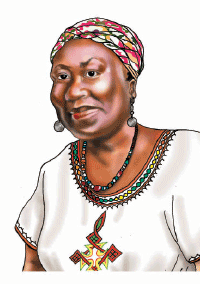The recent history of Fiji came up during my last reading club meeting, and had us all wondering why similar events may occur in two countries and reactions to them would be so completely different. The book being read is Loren Cunningham’s “The Book That Transforms Nations: The Power of the Bible to Change Any Country” (2007, YWAM Publishing). Fiji, we were informed, had two violent coups in 2000, occasioned by racial and religious tensions which had surfaced among the island’s two major ethnic groups. The indigenous Fijians, said to be mostly Christians and just over half of the population, began to resent the political and economic successes of the Indo-Fijians, mostly Muslims and Hindus, whose ancestors had been brought in by the British during the colonial era. The resentment and envy led to the burning and looting of stores belonging to the more prosperous Indo-Fijians and the raping of their women. Those violent events resulted in the death of eight people – and the two unsuccessful coups.
Now, here is the sentence that set my mind thinking about the topic for this present article: “Although the authorities put down the rebellion and imprisoned the instigators, the leaders of Fiji felt their country had been diminished in the eyes of the world.” (Emphasis mine). Here were leaders who thought to themselves: What would the world now think of us after all that has happened in our country? That we are an intolerant people, unable to accommodate ethnic and religious diversity? That our women can be raped and so blatantly humiliated? That we are incapable of settling our internal problems without resorting to arson and murder? The leaders of Fiji were profoundly bothered and felt ashamed that such events had taken place in their country, and they took some very unusual steps to set things right.
Meanwhile, here we are in Nigeria, where similar occurrences – and worse! – have taken place, and have been our reality for decades. Ethnic and religious conflicts, riots, coups, rape, assassinations, insurgency and other forms of violence (like mind-boggling levels of corruption and the abduction of 219 young girls) have come to establish themselves as part of our daily routine; but it is doubtful that these evils grip the hearts of our own leaders in the manner that those of the Fijian leaders were reported to have been gripped. Our political leaders generally refuse to discuss our social ills and appear not to concern themselves with worrying about how our nation is perceived in the eyes of the world. If they did, would the members of our assemblies, both at the national and state levels, resort so easily to exchanging blows as a means of settling disputes? As we all remember, this even happened once at the National Assembly while a group of secondary school students was visiting the House! They hardly care what Nigerians think of them, much less the rest of the world!
I wonder, during President Muhammadu Buhari’s visit to President Barack Obama, would there have been a clear indication, in speech or in his body language, that he felt ashamed about the current situation of his country? One hopes so. Specifically, the nation’s inability to deal decisively with Boko Haram and the revelation that much of the funds allocated for that purpose had been diverted into private pockets? In asking for help to fight the insurgency and to repatriate the huge amounts stolen by Nigerian officials and stashed away in foreign banks, was there any tinge of shame in his comportment? Surely, he was not the offender in these misdemeanors; but then, how could you be the leader of Nigeria at this time, given our present circumstances, and not feel shame, for instance, at the unimaginable levels of corruption by former governors and other top government functionaries now being uncovered by the EFCC?
The feeling of shame is normally a strong deterrent to engaging in evil. A person might say: “I cannot afford to do such a thing; the shame I would feel would be too great if it were found out.” And indeed, people have been known to commit suicide because they could not handle the shame which resulted from their action. Do the Yorubas not have a saying: iku ya ju esin lo (death is more tolerable than mockery)? Another level of shame makes a person declare: “Never again!” – and this is the type particularly required of leaders. For when a nation has been through a period during which they appear to have lost their moral bearings and have engaged in despicable actions (like Germany did under Hitler), then one of the things most needed is for a leader to emerge who, propelled by the feeling of shame at how “their country has been diminished in the eyes of the world”, would be able to boldly declare: “Never again!”
We end this piece with Fiji: “Prime Minister Qarase organized a gathering in Albert Park in Suva, Fiji’s capital… Then, in a stunning act of public contrition, the Prime Minister got down on his knees before the opposition leader, Mahendra Chaudhry, a Hindu, and asked for his forgiveness. Next, the Prime Minister reached for a basin and a towel and washed his political opponent’s feet.” Some people take this good governance issue terribly seriously! A question: Has Nigeria (not) sunk low enough for our leaders to take some drastic steps, so that we would no longer be diminished in the eyes of the world?











